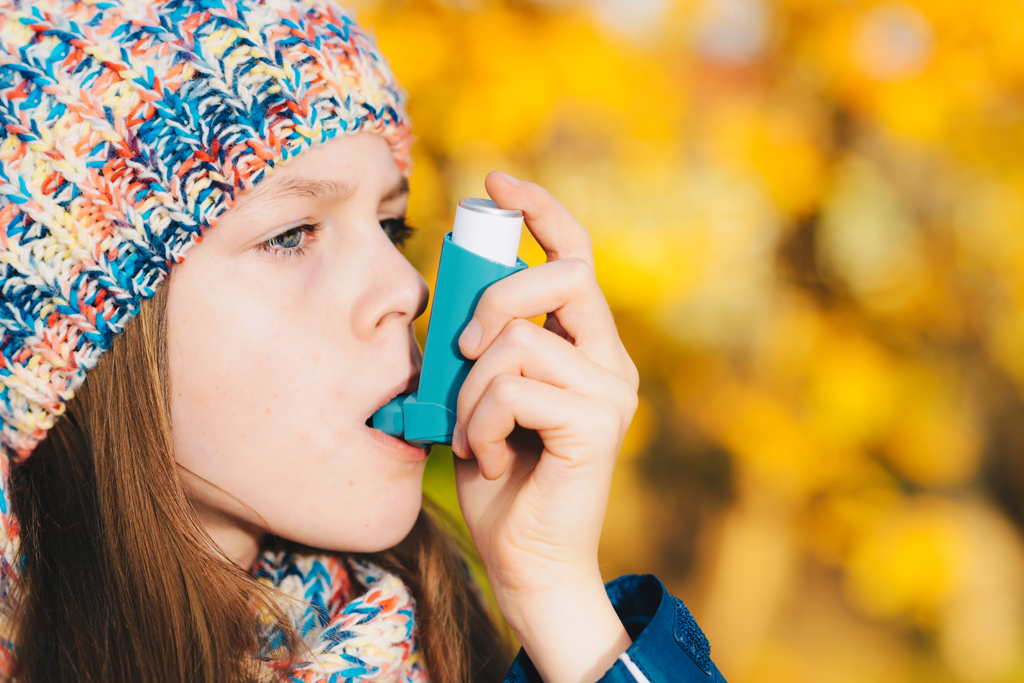Cold, dry air is one of the most common triggers for asthma. This is why it’s especially important during winter to learn how to manage the symptoms and prevent an attack. Here’s a look at the connection between winter and asthma attacks and how you can manage the symptoms in the cold Arkansas weather.
What is asthma?
Asthma is a chronic respiratory disease that causes inflammation and narrowing of the airways. The narrowed airways make it difficult to breathe, causing what’s commonly referred to as “shortness of breath.” The exact cause of the disease is unknown, but research suggests that it could relate to the immune system, which causes an allergic reaction to some common allergens in the environment.
The connection between winter and asthma attacks
Your respiratory system is designed to warm, and clean the air you breathe before it gets to your lungs. Your nose is also able to moisten the air to make its movement through the airways easy.
However, the air in winter is usually cold and dry, and sometimes your nose and mouth aren’t able to adequately warm and moisten the air. As you breathe the cold and dry air, your lungs tighten, making the airways narrow. The narrowed airways hinder the proper movement of the dry air hence triggering an asthmatic attack.
You might notice that if you go from a warm indoor environment to a cold outdoor environment, you begin wheezing and coughing. This is due to the sudden exposure to cold, dry air. Sometimes the attack can be so severe that you can hardly concentrate on any outdoor activity in winter.
Managing asthma before an attack
Use these chronic disease management techniques to stay ahead of an attack.
Move to a warmer area, or go back to the house.
If you try to get out of the cold, your coughing and wheezing should go away or at least lighten enough to prevent an attack.
Breathe through your nose.
The main trigger of a cold-related asthma attack is the lack of enough moisture in the air. Dry air irritates the narrowed airways, causing you to cough and wheeze. The nose is, however, able to moisten the air, thus minimizing the coughing and wheezing. If you’re jogging outdoors and you find it difficult to breathe through your nose, try covering your face with a scarf. The scarf will warm the air, and reduce the chances of an attack.
Always carry your inhaler.
It’s especially important to have your inhaler with you wherever you go. The inhaler will enlarge the airways, and help you breathe normally, reducing the chances of an attack. If the symptoms don’t subside, you can stay indoors for a while until you can go outdoors. Remember to breathe through the nose, and cover your mouth with a scarf.
How to handle severe asthmatic attacks
If your symptoms persist or if you need urgent care, contact a family practitioner near you in Arkansas for more specialized treatment. Here a doctor will discuss with you the various treatment options available for managing asthma.
Typically, clinical treatment of asthma is on an outpatient basis. However, depending on the severity of your symptoms, the doctor can recommend an integrated care plan where you spend a few days at the hospital under the doctor’s care.
Research on integrated care for asthma shows that there’s no significant difference in the response to treatment for patients with mild asthma under integrated care and outpatient treatment plans.
Nevertheless, severe attacks will require you to be placed in an integrated care plan. Once this happens, your doctors can manage your symptoms within a few days, after which you will be discharged. Your doctor will also prescribe long-term treatment drugs, such as inhaled corticosteroids and leukotriene modifiers.
For more information
Don’t let the cold Arkansas weather control your asthma. Contact ARcare today at (866) 550-4719 to schedule an appointment or for more information on managing your symptoms to prevent an attack.
